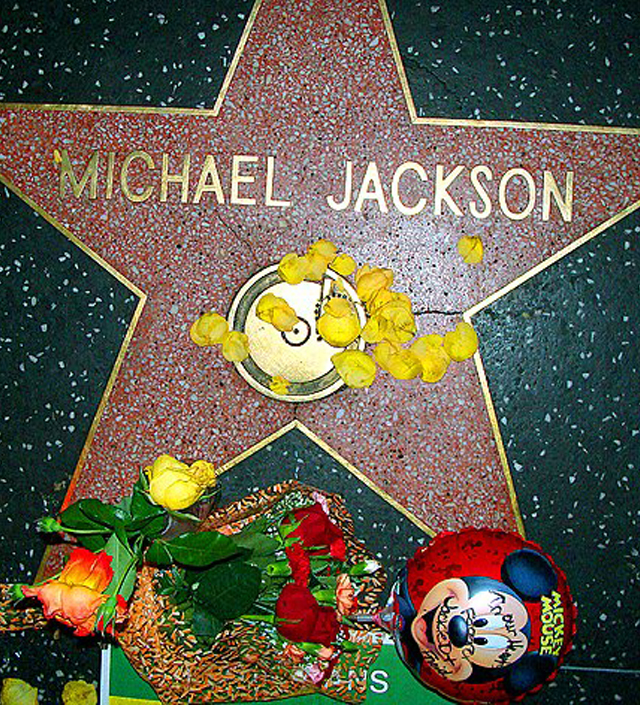Prince’s untimely passing in 2016 sparked numerous controversies — including an investigation into the circumstances of his lethal overdose and feuds among his siblings and stepsiblings over who were his rightful heirs and who should control his estate. Prince didn’t have a will, or any kind of estate plan, so it is up to the courts to determine who will administer the estate and how his assets will be distributed among his heirs.
If that wasn’t enough controversy, the IRS recently decided that Prince’s estate is worth approximately twice what his estate representatives reported as its value, or $163 million versus $82 million. This has triggered another dispute – this time in the U.S. Tax Court. If the IRS valuation holds, the additional cost to the estate will be approximately $39 million, including penalties and interest.
However, this discrepancy in value is hardly the most egregious difference of opinion between an estate representative and the IRS.
After Michael Jackson died in 2009, his estate representatives reported the value of Jackson’s likeness to be worth $2,105. At the time, Michael Jackson had just paid $20 million to settle child molestation claims, he was recently divorced, and his criminal trial was still fresh in most people’s minds. Jackson was also reportedly insolvent, with assets estimated to be worth $236 million and debts approaching $500 million.
Despite all of this, and with the help of hindsight, the IRS determined the value of Jackson’s likeness to be $435,264,000. But a decision the U.S. Tax Court recently made on the Jackson case – discussed later in this article — shows that even the IRS doesn’t have the final word when it comes to valuations.
Reconciling Wide Disparities
How do experts in the field reach such disparate views of the same set of circumstances when playing by the same set of rules?
According to Section 2031 of the Internal Revenue Code, the value of the gross estate of a decedent includes the value of real, personal, tangible and intangible property at the time of his or her death.
Section 20.2031-1(b) of the regulations provides that the value of this property equals its fair market value. This is the price at which property would change hands between a willing buyer and a willing seller, with neither being under any compulsion to buy or to sell, and both having reasonable knowledge of relevant facts.
This definition seems fairly easy to apply, and it is — if someone is trying to find the value of a share of a publicly traded company. After all, if we want to know the value of a share of Apple stock, all we need to do is look at a stock ticker.
However, applying this concept to a privately owned company is far more difficult, particularly when one has to consider issues such as lack of marketability and lack of control. In the cases involving Michael Jackson and Prince, the U.S. Tax Court also has had to consider more esoteric issues, even by tax court standards, such as the value of someone’s likeness and the value of approximately 8,000 unreleased songs.
Untangling the Paul Mitchell Case
Until somewhat recently, the problem with determining value was more about the referees and court system, and less about the players, tax authorities and taxpayers.
A good example is the lengthy tax court battles regarding the estate of infamous hairdresser Paul Mitchell. The case, initially heard in the U.S. Tax court in 1989 and later appealed, wasn’t resolved until the early 2000s.
Mitchell quickly gained fame as a hairdresser soon after being hired by Vidal Sassoon to work in an exclusive salon in London. His success led Sassoon to send Mitchell to New York where his reputation soared.
After establishing a following there, Mitchell took the opportunity to head up another exclusive salon, Crimpers, within the flagship Henri Bendel store in New York City. Mitchell then opened more Crimpers salons in Boston, Chicago, Dallas and Philadelphia before launching his own New York salon, Superhair, in 1972.
In 1980, Mitchell partnered with John Paul DeJoria and founded John Paul Mitchell Systems (“JPMS”). Their first venture involved selling hair care products through salons, under the Paul Mitchell brand name, marketed as professional quality products for use in the home.
A major ingredient leading to the success of this venture was Paul Mitchell’s fame, which gave him access, and shelf space, at high-end salons across the country, Coupled with John Paul DeJoria’s salesmanship, marketing savvy and creativity, the company thrived, earning Mitchell, DeJoria and others tens of millions of dollars before expanding into hairdressing schools, among other related businesses.
Unfortunately, Paul Mitchell died at age 53 in 1989.
$28.5 Million Vs. $105 Million
Among the assets in Paul Mitchell’s estate were 1,226 shares of JPMS stock representing approximately a 49% interest in the company. On its estate tax return, the estate reported the value of Mitchell’s interest in JPMS, at the time of his death (the relevant point in time), to be $28.5 million. Naturally, the IRS disagreed; it claimed the fair market value was $105 million.
The U.S. Tax Court issued its first opinion in this dispute in 1997, ultimately rejecting the positions taken by the estate and the IRS and most of the analysis of the experts involved on each side of the case. Their valuations ranged from $20 million to $105 million.
Instead, the Tax Court decided that JPMS was worth $150 million, reasoning that DeJoria’s rejection of an offer of $125 million to sell the company and counter for $150 million was the best proxy for the value of JPMS. The Tax Court then reduced that amount by $15 million to reflect the loss of Mitchell’s expertise to the company, and multiplied the remainder by Mitchell’s 49% interest to arrive at a value of $66,204,000.
The court then applied a 35% combined discount for lack of marketability and the fact that Mitchell held a minority interest. It also applied an additional discount of $1.5 million to reflect the possibility of litigation over DeJoria’s excessive compensation, yielding a final value of Mitchell’s interest in JPMS to be $41,532,600.
However, the United States Court of Appeals for the Ninth Circuit vacated the Tax Court’s 1997 decision, finding, among other assignments of error, that the Tax Court failed to provide an adequate explanation of its determination of value.
Responsibility to Justify
In its Mitchell decision, the U.S. Court of Appeals for the Ninth Circuit noted that it is the obligation of the Tax Court to spell out its reasoning. In other words, it must do more than just enumerate the factors leading to its conclusion but also explain why. More details are available here.
The Appeals Court remanded the case back to the Tax Court, which ultimately came to the same conclusion/value but gave additional detail at how it arrived at the value it assigned to the assets.
Now back to Michael Jackson. The Tax Court’s May 4, 2021, decision on Jackson’s estate essentially followed the same path as it did in Estate of Mitchell but not before excoriating the IRS’s valuation expert and rejecting his entire opinion.
The court found that the IRS expert lacked credibility after making several false statements about his work with the IRS. The Tax Court refused to strike the expert’s testimony and decided to discount his credibility and the weight of his opinions, which the Court ultimately described as “fantasy.”
The Tax Court adopted the opinion of one of Michael Jackson’s estate’s experts with some relatively minor modifications and concluded that the value of Jackson’s image and likeness was $4,153,192 – less than 1% of the IRS’s Notice of Deficiency and about 2.5% of the IRS expert’s opinion at trial.
Lessons for Those Making Gifts
The lessons from the Estate of Mitchell saga are useful and informative to those who want to make a gift with some finality and avoid a decade or more of litigation with the IRS. Indeed, there will always be disputes over value because experts, who should avoid being advocates, can look at the same data and come to different conclusions.
But the experts in Estate of Mitchell should have been able to see that the biggest piece of their valuation puzzle could have been easily solved by looking at DeJoria’s negotiation with a buyer: He rejected $125 million and asked for $150 million for the company. The experts in this case seem to have mostly agreed on the rest.
There are many lessons to be learned from the decision in the Michael Jackson likeness dispute. The most important is credibility. The expert’s assumptions that formed the basis of his opinion could have been discovered prior to trial. The court did not find the IRS expert credible because he lied about using his status as an expert to generate business, among other reasons.
Those making a gift will also want to ensure that the analysis is detailed and conforms to the Tax Court’s recent decisions. Hopefully, the Tax Court will be able to come to a decision in Prince’s controversy and the Appeals Court will decide Michael Jackson’s likeness tax thriller quickly and allow the rest of us to deliriously tell the Tax Court to “beat it.”
Attorney Jon Barooshian, partner at Bowditch & Dewey LLP in Massachusetts, specializes in tax controversy and dispute resolution. He can be reached at jbarooshian@bowditch.com.







